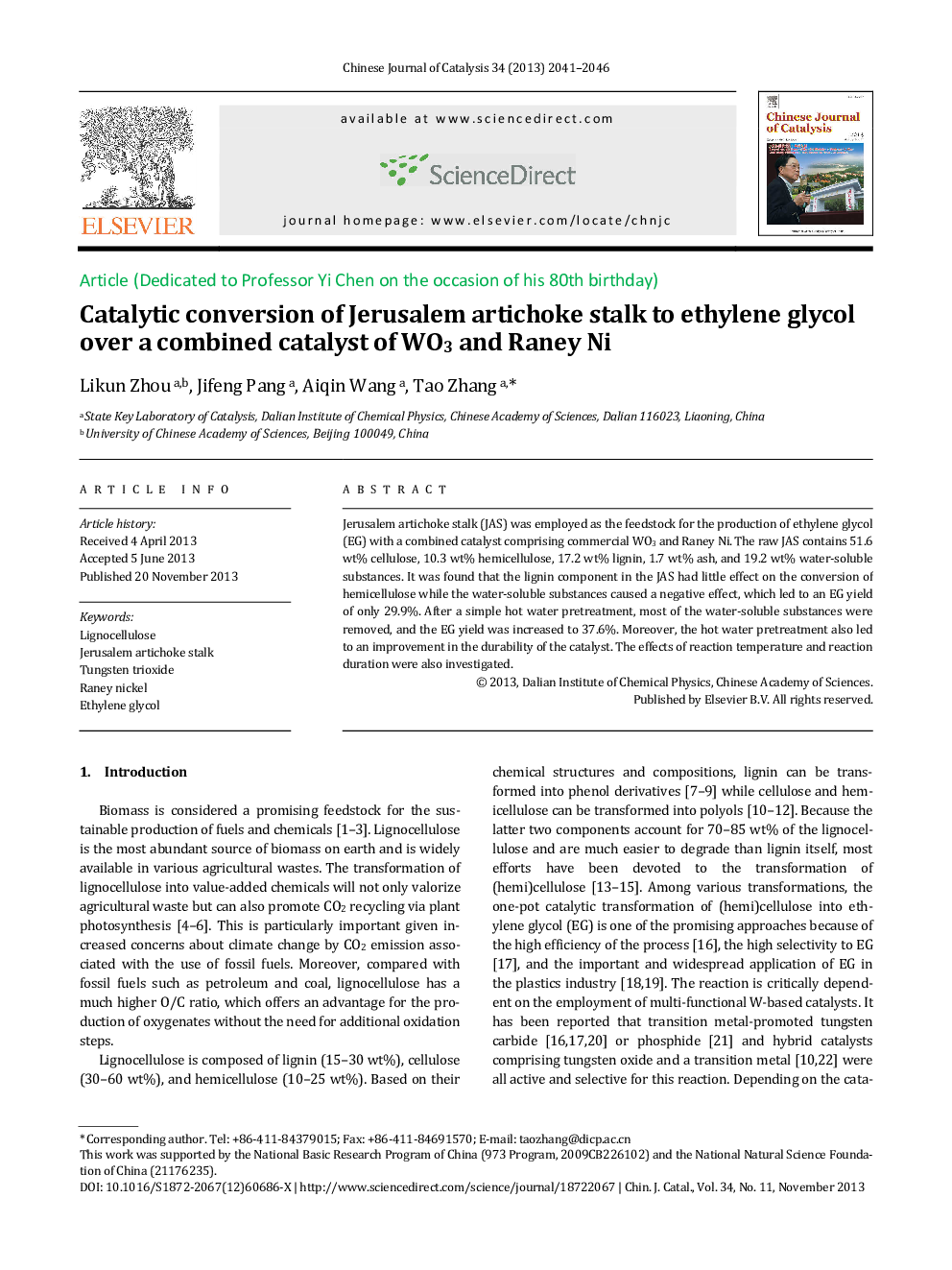| Article ID | Journal | Published Year | Pages | File Type |
|---|---|---|---|---|
| 59908 | Chinese Journal of Catalysis | 2013 | 6 Pages |
Jerusalem artichoke stalk (JAS) was employed as the feedstock for the production of ethylene glycol (EG) with a combined catalyst comprising commercial WO3 and Raney Ni. The raw JAS contains 51.6 wt% cellulose, 10.3 wt% hemicellulose, 17.2 wt% lignin, 1.7 wt% ash, and 19.2 wt% water-soluble substances. It was found that the lignin component in the JAS had little effect on the conversion of hemicellulose while the water-soluble substances caused a negative effect, which led to an EG yield of only 29.9%. After a simple hot water pretreatment, most of the water-soluble substances were removed, and the EG yield was increased to 37.6%. Moreover, the hot water pretreatment also led to an improvement in the durability of the catalyst. The effects of reaction temperature and reaction duration were also investigated.
Graphical abstractOver the combined catalyst of WO3 and Raney Ni hot water-treated Jerusalem artichoke stalk (JAS) was selectively converted into ethylene glycol with a yield of 41.4%.Figure optionsDownload full-size imageDownload as PowerPoint slide
